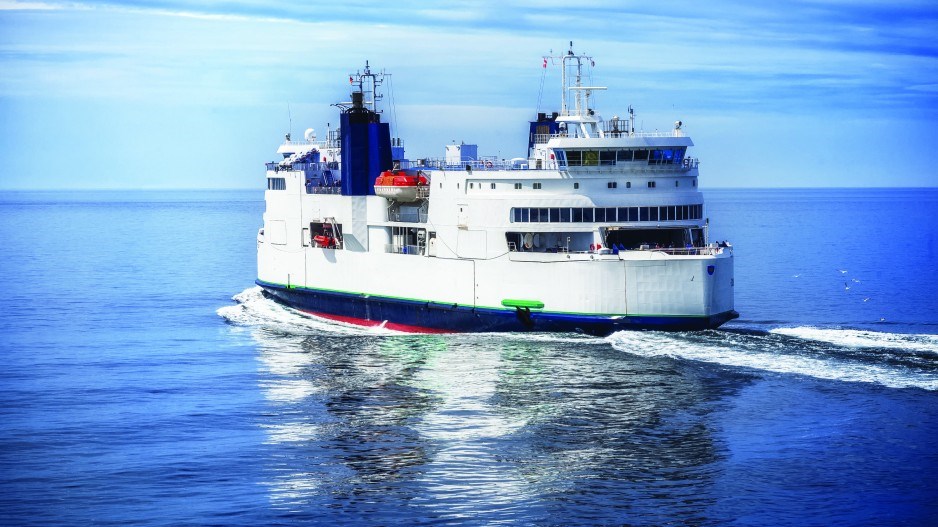Norway is half a world away from Vancouver, but in the lithium-ion battery world, the two share a close bond.
Vancouver is something of a leading hub when it comes to developing and manufacturing lithium-ion batteries for maritime applications, and Norway is a global leader in building and putting into service the vessels that use them.
Vancouver is home to two companies that specialize in fostering the lithium-ion battery market for maritime applications – Corvus Energy and its rival, Plan B Energy Storage (PBES), which was started in 2015 by two former Corvus founders.
Both companies are heavily focused on Norway, which is the biggest market for rechargeable batteries used to power ferries and other vessels.
So it is perhaps no surprise that Corvus is now headed by a Norwegian. After all, though still headquartered in Richmond, where the manufacturing is done, Corvus is now largely Norwegian-owned.
Norway’s Statoil and BW Group were already major shareholders when, at the end of November, Norway’s Norsk Hydro, an aluminum producer and hydroelectric power company, also took a 26% stake in Corvus.
Corvus is now 75% owned by Norwegian companies, with the remaining 25% share of the company held by B.C. investors with El Cuervo Holdings.
In early December, Corvus announced the departure of former CEO Andrew Morden, who has been replaced by Geir Bjørkeli, who will remain in Norway.
Bjørkeli is the former Norwegian director for the Dutch company Huisman, which manufactures oil drilling vessels and rigs. A mechanical engineer, Bjørkeli also worked as a design engineer for the Norwegian shipbuilder Ulstein.
“I’m going to be based in Norway but I’m going to spend a fair amount of time in Vancouver,” Bjørkeli told Business in Vancouver.
Founded in 2009 and headquartered in Richmond, Corvus has been one of Vancouver’s most successful and fastest-growing alternative energy companies. It employs 86 people, about two-thirds of whom are based in Richmond.
From the outset, Corvus has specialized in designing and manufacturing rechargeable lithium-ion batteries for boats, although it has flirted with other markets.
In 2014, three years before Tesla (Nasdaq:TSLA) unveiled its battery-powered semi tractor-trailer, Wal-Mart Stores Inc. (NYSE:WMT) announced a prototype hybrid semi truck that can run on either diesel or natural gas and battery power, with the batteries made by Corvus. The company is also exploring the electric-rail market.
But the mainstay of Corvus’ business is designing and manufacturing batteries for marine applications – Norway and Denmark being the world’s biggest adopters to date.
Corvus’ Orca ESS battery systems are used in all-electric and hybrid electric vessels, including ferries, coast guard vessels and fishing boats. Statoil has also been investing in the electrification of offshore oil vessels and drilling platforms, which explains why the energy company has taken an equity stake in Corvus.
Two of the supply vessels used in Statoil’s offshore oil operations are hybrid systems that use Corvus batteries. According to Statoil Technology Invest, the hybrid vessels reduce carbon dioxide emissions by 20% to 25%, and reduce fuel costs.
Bjørkeli said there is a potentially huge market for electrification of offshore oil drilling platforms and vessels.
“Statoil, as a leading oil company, also has a very strong focus on emissions,” Bjørkeli said. “They recently said that all platform supply vessels … need to have energy storage systems installed.”
Norway has been a leader in the electrification of the marine environment for several reasons. It has an innovative shipbuilding industry, an abundance of hydro power, a coastline of fiords suited to electric-powered marine traffic because short journeys are common, high fuel costs and government energy and climate change policies that encourage electrification.
“They have a high fuel price, high fuel tax, they have meaningful subsidies for not only companies that develop products, but the end-user to adopt the technology,” said Sean Puchalski, vice-president of marketing for Corvus.
In Norway, the biggest users of marine batteries are ferries and fishing vessels. Although northern Europe is the biggest market for an electrified marine sector, there is also a growing market in North America.
Seaspan Ferries Corp. now has two hybrid ferries running on liquefied natural gas and Corvus batteries, BC Ferries also has plans for new hybrid-electric ferries for some of its shorter-route vessels, and some tugboat operators have begun to make the switch in Washington state.
“From a sales and service perspective, the North American market’s coming along,” Puchalski said. “In a couple of years, it might be more balanced in terms of where the customers are.”
According to Navigant Research, global sales of lithium-ion battery packs for the marine, rail and underground mining sectors are expected to reach $6 billion annually by 2026, with the marine sector accounting for half.




